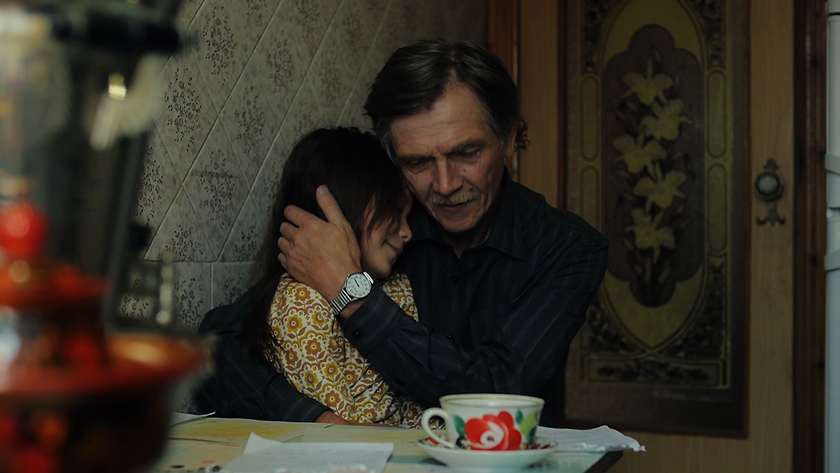Memories are probably the second most complex aspect of the human experience next to our emotions. They are incredibly powerful, able to take us back in time to relive moments again even to the point of engaging any and all of our five senses. Memories help keep us connected to the people and places which we maintain as precious experiences. However, memories can be sources of great sadness and pain. This dual nature of our memories is at the heart of Reminiscentia, an independent Russian-language movie made by Japanese director, Inoue Masaki.
Mikhail is a novelist who lives a quiet life with his beloved daughter, Milenia, on the outskirts of a Russian city. Troubled people come to Mikhail asking him to erase their memories with his uniquely special gift. The ideas for his novels come from the memories he removes from others. Then one day, Mikhail notices a portion of his memories with his daughter is gone. Distressed by being unable to recollect the past, Mikhail goes to the church to pray. Thereupon he encounters Maria, who is plagued by a condition of remembering everything she sees. She, too, has a special gift just like Mikhail, only she is able to evoke people’s memories. Mikhail offers Maria a deal: in exchange for erasing her memories, he wants her to bring back the memories of his daughter. Through Maria’s ability, Mikhail dives into the crevices of his memories only to find a shocking truth.
Inoue was a staff member on Alexandre Sokurov’s The Sun during which he became acquainted with film production in Russia. He decided then to make his directorial debut in Russia, shooting the movie back in 2013 in the city of Yaroslavl, 300 kilometers from Moscow, and employing an all-Russian cast from the local theatre troupe, some of whom have been acting since the days of the Soviet Union. Furthermore, Inoue was determined not to compromise on the production quality. He undertook the costs himself and spent over a year in post-production pointing to Andrei Tarkovsky’s Solaris, Timur Bekmambetov’s Night Watch, and Alexandre Sukorov’s Whispering Pages as examples of Russian science fiction which, along with their unique stories, have a characteristic visual beauty due to their level of artistry. The trailer certainly demonstrates how well the uniqueness of the locales and culture lend to the story’s allure.
“I wrote the scenario myself. The operating title was ‘Memory and Love’. So, I would say that this film is about memory, which has not been studied yet, and about love, which everybody feels, but no one can explain,” Inoue stated in an interview with Sputnik News. As with many of the best science fiction, Inoue is taking something with which we are all familiar, perhaps even take for granted, and looks at it from an extraordinary, if not bizarre, perspective in order to give us a wholly new appreciation for who we are and our place in the world (or universe). The movie took home three awards in Los Angeles (one of which went to lead actor Alexander Tsirkov) as well as Japan where it was released in November of 2016. The filmmakers are still actively seeking a release in Russia in addition to other territories.

